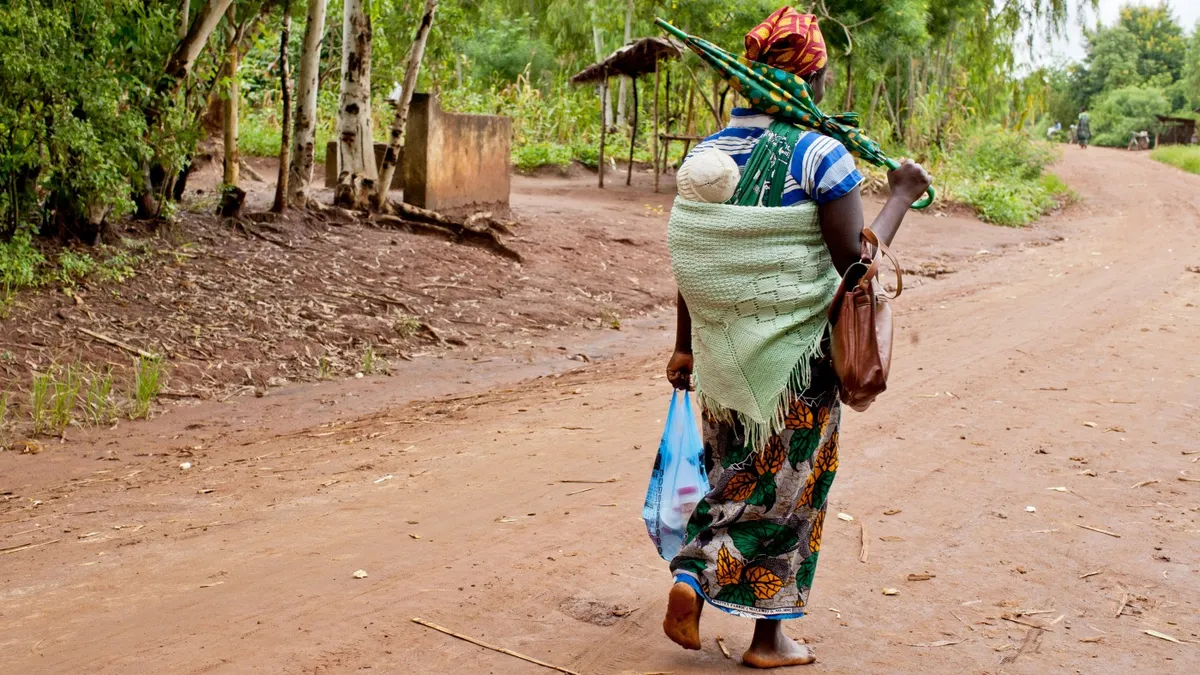
In a groundbreaking development, babies may soon join soldiers in the fight against malaria. For years, the U.S. military has effectively treated uniforms with insecticide to repel mosquitoes and the dangerous diseases they transmit. Dr. Ross Boyce, an infectious disease physician and malaria researcher at the University of North Carolina at Chapel Hill, was inspired to explore whether infants could receive similar protection. Instead of uniforms, Boyce focused on the baby wraps commonly used by mothers in sub-Saharan Africa to carry their little ones.
This initiative comes at a critical time, as nearly every minute, a child under 5 in sub-Saharan Africa dies from malaria. Current preventative measures, such as insecticide-treated bed nets, only provide protection while children are sleeping. Recognizing this limitation, Boyce and his team embarked on a large-scale randomized controlled trial to investigate the effectiveness of permethrin-soaked baby wraps.
The study took place in a rural area of western Uganda, where 200 mothers with children aged 6 to 18 months received permethrin-treated baby wraps, while another 200 mothers were given wraps soaked only in water. All participants were also provided with new treated bed nets. Over the course of six months, the children visited clinics bi-weekly for malaria symptom checks and testing. The research team also monitored for any potential side effects from the treatment.
To ensure prolonged effectiveness, the researchers re-soaked the baby wraps in permethrin every four weeks. Dr. Boyce admits this may have been excessive, stating, “We really wanted to know if we have enough permethrin in there, does it work?” The results were overwhelmingly positive.
After six months of observation, only 34 children in the permethrin-wrap group tested positive for malaria, compared to 94 in the water-soaked group. This remarkable outcome represents a reduction of approximately 65%. Dr. Thomas Eisele, a malaria researcher at Tulane University who was not involved in the study, remarked, “It’s a really large reduction, surprisingly so.” This significant decrease indicates that mosquitoes may be more active during the day than previously believed, underscoring the need for innovative intervention strategies.
Concerns about potential side effects were also addressed during the trial. Permethrin, when ingested in high quantities, can lead to growth and neurological issues. However, when treated on fabric, the transmission through the skin is significantly reduced. Additionally, the children were typically clothed under the wraps, minimizing direct contact. Throughout the experiment, about 8.5% of the babies in the treatment group developed a mild rash, compared to 6% in the control group. While no intervention is without risk, Dr. Eisele emphasizes that contracting malaria poses far greater dangers for children.
While the frequent retreatment of the wraps demonstrated in the study may be impractical in real-world settings, Dr. Boyce believes it may not be necessary. Manufacturers are capable of producing long-lasting permethrin-treated garments. In the future, Boyce envisions a scenario where mothers receive these durable baby wraps when they visit clinics for vaccinations, providing an additional layer of protection before their children start to explore the world independently.
The findings from this research indicate a promising new avenue for preventing malaria in infants, particularly in regions where the disease remains a critical public health challenge. By integrating insecticide-treated baby wraps into malaria prevention strategies, we could potentially save countless young lives and offer families greater peace of mind.